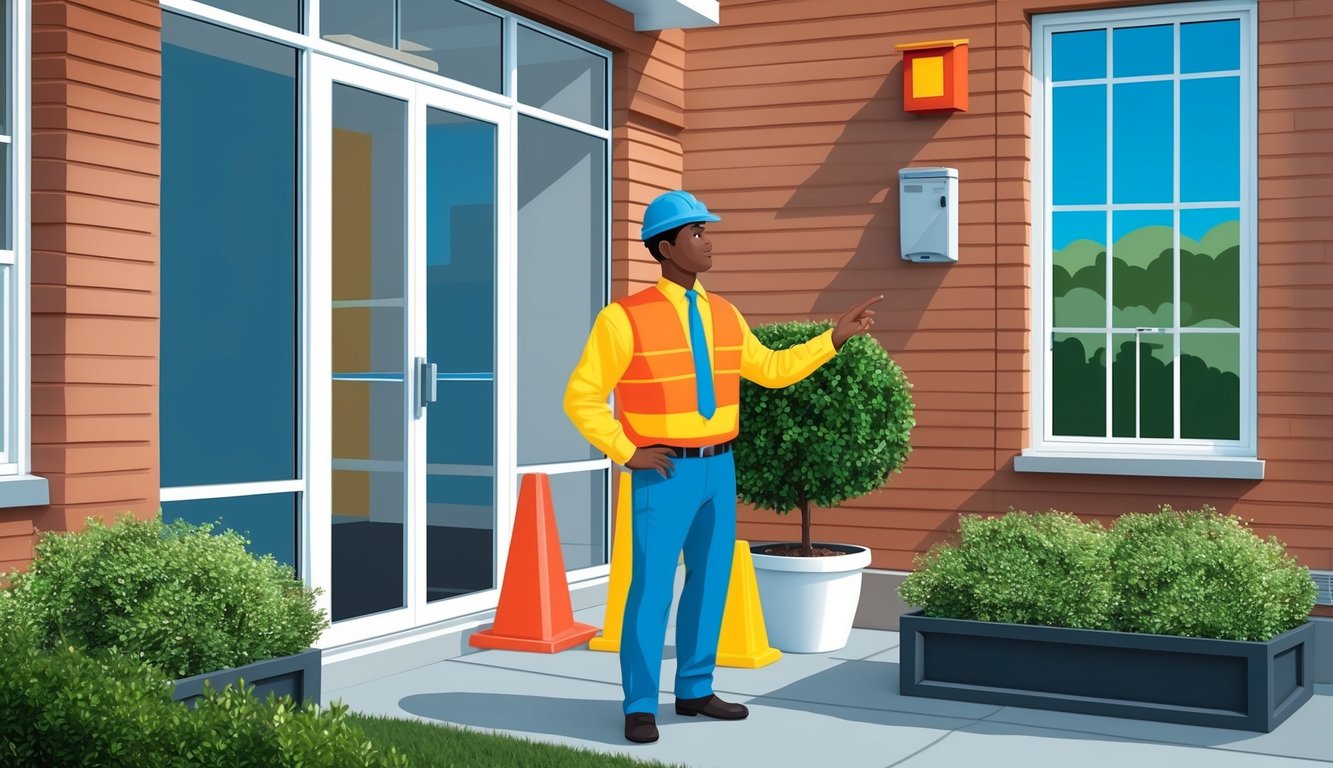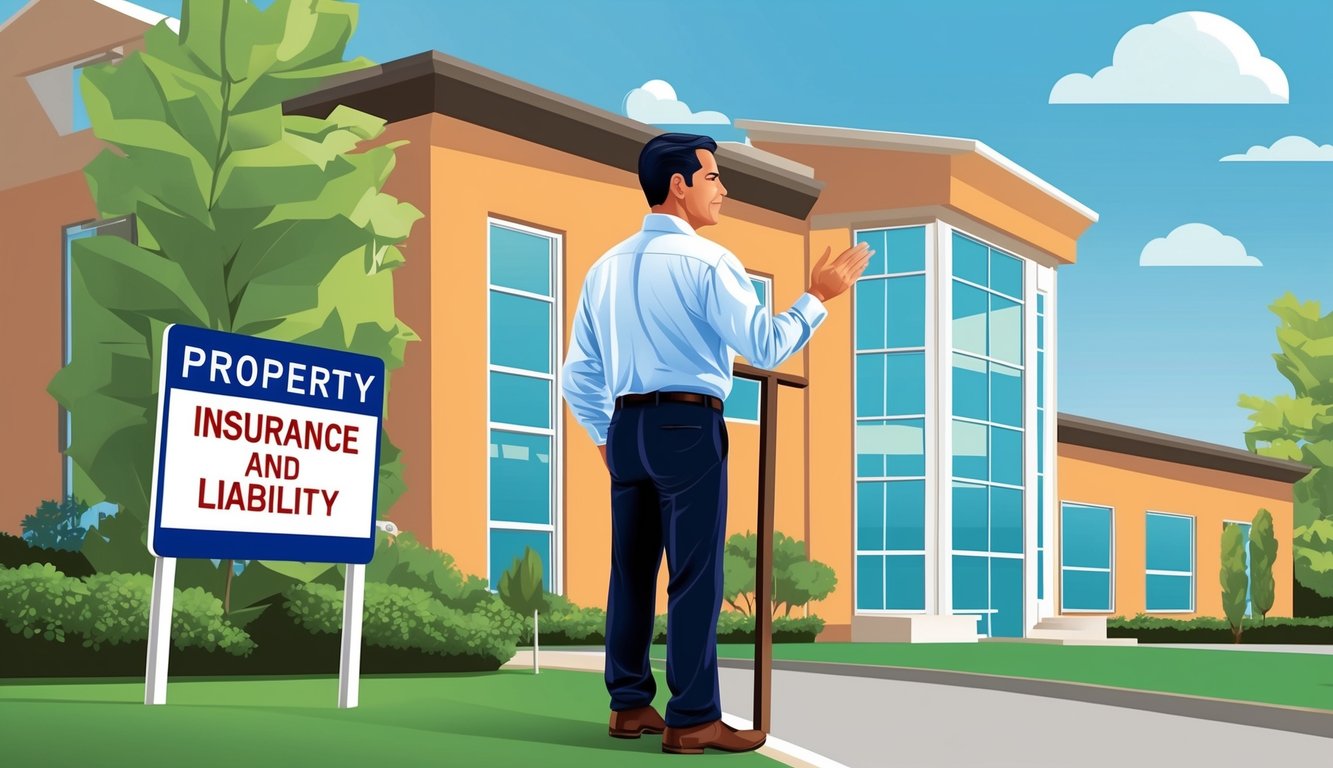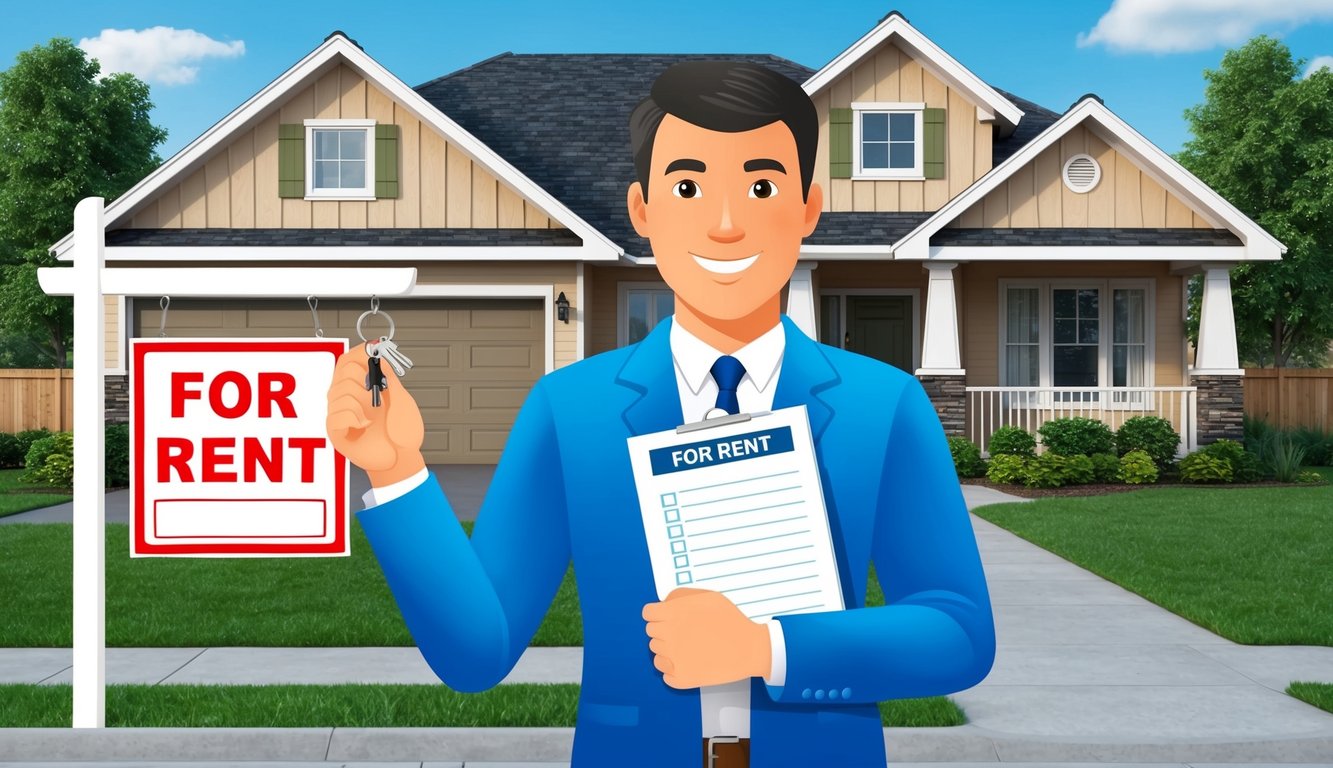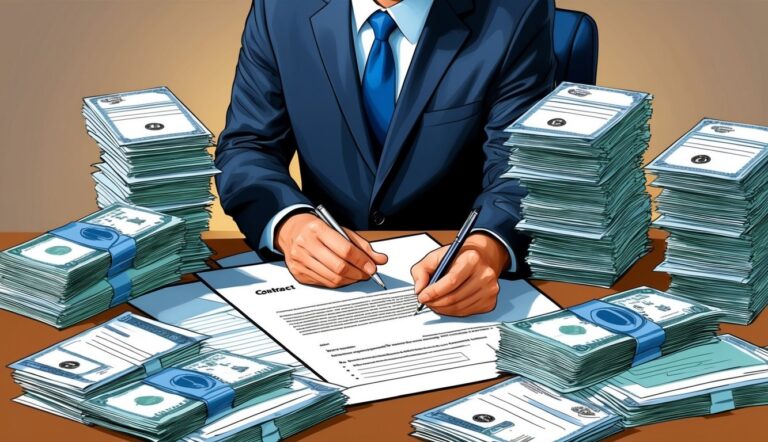Legal and Financial Obligations
As a property owner, you must understand your legal and financial obligations.
This includes complying with laws and regulations, managing your finances effectively, and handling lease agreements and security deposits properly.
Compliance with Laws and Regulations
You must comply with various laws that govern property ownership.
This includes understanding the Fair Housing Act, which prohibits discrimination against tenants based on certain characteristics.
Property owners also have a responsibility to keep their properties safe and habitable.
This means adhering to local building codes and health regulations.
Failure to comply can result in legal actions, fines, or even foreclosure.
Staying updated on any changes in laws affecting your properties is also crucial.
This emphasizes the importance of ongoing education in legal compliance.
Financial Management
Effective financial management is key to maintaining your property and fulfilling your obligations.
You need to keep track of essential expenses like property taxes, mortgage payments, and insurance premiums.
Creating a budget can help you monitor these expenses and plan for unforeseen costs, such as repairs or legal fees.
Additionally, consider setting aside funds specifically for maintenance and improvement projects, as they are vital for preserving property value and compliance.
Regularly reviewing your financial statements and being proactive about your financial obligations can prevent issues such as foreclosure.
Handling Leases and Security Deposits
When renting out your property, proper management of lease agreements and security deposits is critical.
A clear lease agreement should detail rent payments, tenant rules, and responsibilities.
You must also adhere to the legal requirements surrounding security deposits.
This includes how much you can collect and the timeframe for returning these funds after a tenant vacates.
Proper tenant screening is necessary to find reliable renters.
This mitigates the risk of late payments and potential eviction processes, ensuring a smoother rental experience for you.
Property Maintenance and Safety

Maintaining your property involves a proactive approach to upkeep and safety standards.
By understanding your responsibilities, you can ensure a safe environment for tenants while minimizing legal liabilities.
Routine Maintenance and Repairs
Regular maintenance is essential to keeping your property in good condition.
This includes scheduled tasks like HVAC servicing, plumbing checks, and electrical inspections.
Timely repairs can prevent larger issues, helping you avoid costly emergency repairs later.
Create a maintenance checklist that outlines tasks by season.
This ensures no area is overlooked.
For instance:
- Spring: Inspect roofing, clean gutters, and prepare landscaping.
- Summer: Check air conditioning and outdoor plumbing.
- Fall: Winterize outdoor features and inspect heating systems.
- Winter: Monitor for leaks and clear snow from pathways.
By staying on top of these tasks, you protect your investment and uphold the warranty of habitability.
Safety and Habitability Standards
As a property owner, you are legally required to meet safety and habitability standards.
This includes ensuring safe water supply, proper heating, and functional electrical systems.
Failure to meet these requirements can lead to legal liability.
It’s crucial to address health and safety concerns promptly.
Implement pest control measures to prevent infestations.
Regularly check smoke and carbon monoxide detectors, and ensure that safety features like handrails and fire escapes are in working order.
By prioritizing these aspects, you maintain a safe living environment that meets legal and ethical obligations.
Conducting Regular Property Inspections
Conducting routine property inspections is vital for identifying potential issues early.
Schedule inspections at least twice a year to assess both the interior and exterior of your property.
Look for signs of wear and tear, water damage, or pest infestations.
Create an inspection checklist to keep you focused.
Key areas to inspect include:
- Roof and Gutters: Check for leaks or damage.
- Basements and Attics: Look for moisture and mold.
- Common Areas: Ensure cleanliness and functionality.
Maintaining thorough records of inspections, repairs, and tenant grievances adds to your legal protection.
This documentation can demonstrate your commitment to safety and responsibility.
Tenant Relations and Management

Maintaining positive tenant relations is essential for a successful rental business.
Effective communication, tenant selection practices, and consistent rent collection methods contribute significantly to this goal.
Effective Tenant Communication
Clear communication establishes trust and fosters positive relationships with your tenants.
It is crucial to provide tenants with your contact information and ensure that they know the best ways to reach you.
Set expectations for response times and communication channels—emails, phone calls, or texts.
Additionally, keeping tenants informed about property updates or changes is vital.
Regular check-ins can prevent misunderstandings and address issues before they escalate.
Use newsletters or community boards to share information.
Showing empathy and understanding towards tenant concerns demonstrates your commitment and professionalism, which can lead to long-term relationships.
Tenant Selection and Eviction Processes
Choosing the right tenants involves thorough tenant screening to evaluate their backgrounds, rental history, and financial stability.
This process can include credit checks and references from previous landlords.
Proper screening helps you find reliable tenants and reduces the risks associated with non-payment or damaging the property.
If eviction becomes necessary, it’s essential to follow legal procedures to protect your rights and those of the tenants.
Familiarize yourself with local laws governing eviction to avoid potential discrimination claims and ensure compliance with all regulations.
Provide proper notifications and documentation to sustain a sound legal basis for eviction, if required.
Rent Collection and Enforcement of Lease Terms
Establishing a clear rent collection process is key to ensuring consistent payments.
Communicate the due date, payment methods, and applicable late fees to your tenants upfront.
Offering multiple payment methods—such as online payments, checks, or bank transfers—can facilitate timely rent collection.
In the event of late or missed payments, enforce lease terms consistently while remaining professional.
Send reminders and follow-up communications respectfully.
Document all interactions regarding rent collection for future reference.
This practice not only helps maintain accountability but also protects you legally in case of disputes.
Insurance and Liability

Understanding the intricacies of insurance and liability is crucial for property owners.
Insurance not only protects your financial interests but also plays a significant role in managing potential legal liabilities associated with property ownership.
Property Insurance Requirements
As a property owner, it is important to have adequate property insurance.
Insurance policies typically cover damages caused by fire, theft, vandalism, and certain liability claims.
Most mortgage lenders require homeowners to maintain property insurance as a condition of the loan.
You should consider the specific types of coverage, including:
- Dwelling Coverage: Protects the structure of your home.
- Personal Property Coverage: Covers belongings inside your property.
- Liability Coverage: Provides financial protection against accidents occurring on your property.
Maintaining the right level of coverage can safeguard you from substantial out-of-pocket expenses in case of damages or injuries.
Limiting Legal Liability
To limit your legal liability, you must understand your responsibilities towards various visitors on your property, including trespassers, licensees, and invitees.
Property owners owe a higher duty of care to invitees, who are usually those visiting for business purposes.
You can reduce risks and potential liability by:
- Regular Maintenance: Keep your property in good condition to prevent accidents.
- Clear Signage: Use warning signs for hazardous areas.
- Insurance Policies: Invest in liability coverage to protect against claims.
Frequently Asked Questions

Understanding property owner responsibilities is crucial for effective property management.
Below are specific inquiries about legal obligations, maintenance responsibilities, tenant safety, and property rights.
What are landlords legally responsible for in rental units?
Landlords must adhere to local and state laws, which typically require them to provide habitable living conditions.
This includes compliance with health and safety regulations, as well as fulfilling lease agreements.
Which repairs and maintenance tasks fall under the landlord’s responsibility?
Landlords are generally responsible for major repairs, including plumbing, electrical systems, and structural integrity.
Routine maintenance, such as yard work or pest control, may also fall under their purview, depending on lease agreements.
What are the obligations of a landlord to their tenant regarding property safety?
Landlords must ensure that rental properties meet safety standards.
This includes installing smoke detectors, ensuring proper lighting, and removing hazards that could pose risks to tenants.
How does a landlord’s duty to maintain property change by state, such as in Maine?
In Maine, landlords have specific obligations outlined in state law, which may differ from other states.
This includes additional requirements for disclosures related to lead paint and ensuring properties comply with seasonal safety standards.
What are the essential duties included in property management?
Essential duties involve tenant relations, overseeing maintenance, financial reporting, and ensuring compliance with local laws.
Effective property management also includes regular property inspections and timely communication with tenants.
What rights and responsibilities does a landowner have in relation to their property?
Landowners have the right to receive rent and make decisions regarding property use.
They are also responsible for maintaining the property and complying with lease agreements and property laws.






